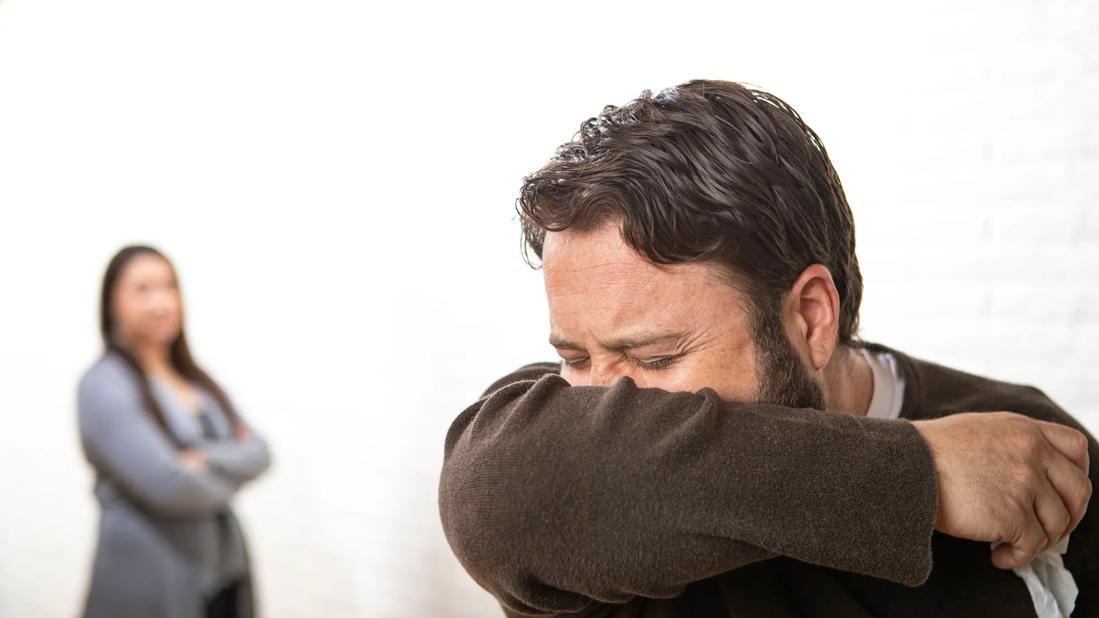Let your body to do what it was meant to do

Image content: This image is available to view online.
View image online (https://assets.clevelandclinic.org/transform/1387b6ca-b358-4596-bef6-37d46aab9974/coughSneeze-MC_2033-040120-770x533-1_jpg)
Man sneezing into arm
It’s second nature for us to want to stop those sneezes. And since the arrival of the coronavirus (COVID-19), the urge to prevent them has grown even stronger.
Advertisement
Cleveland Clinic is a non-profit academic medical center. Advertising on our site helps support our mission. We do not endorse non-Cleveland Clinic products or services. Policy
We try to suppress sneezes so we don’t spread germs or disrupt those around us. But holding them in could cause more harm than you know.
“While sneezing plays a major part in the spread of infection, it’s also necessary for removing irritants, allergens and other foreign debris from the sinuses,” says allergy and clinical immunology specialist, DeVon Preston, MD. “If we didn’t sneeze, our bodies could allow potentially damaging substances into our sinuses or lungs.”
As we move towards allergy season, sneezing is often a presenting symptom and can occur in rapid succession. While you might be conditioned to hold those sneezes in, we say let ‘em rip.
We could spend days outlining the physics, mathematics and dynamics of a sneeze, but we’re not going to do that to you. Needless to say, a sneeze can travel over 70 miles per hour, with incredible force behind it.
Holding in a sneeze can lead to all sorts of damaging outcomes such as an eardrum ruptures and throat (pharynx) ruptures.
“Some people might sneeze because of viral or bacterial infections. If you don’t sneeze, mucus can accumulate and be forced back into the Eustachian tubes,” says Dr. Preston.
Eustachian tubes are small passageways that connect the throat to the middle ear. These tubes open when you swallow, yawn or sneeze so air pressure or fluid won’t accumulate in your ears.
Advertisement
“Pushing infected mucus back into the Eustachian tubes could cause a middle ear infection,” says Dr. Preston. Middle ear infections can lead to holes in the eardrum — and those holes tend to require surgical repair. That’s a lot to deal with considering the alternative of just letting sneezes out to prevent things from getting to this point.
With everyone making a conscious effort to stop the spread of COVID-19, you might be afraid to let out those forceful sneezes. But don’t stop your body from doing its job. Just make sure that you cover your mouth and nose during those sneeze bombs. Also, be sure to wash your hands thoroughly and wipe down nearby surfaces once those sneeze sessions are over.
Advertisement

Sign up for our Health Essentials emails for expert guidance on nutrition, fitness, sleep, skin care and more.
Learn more about our editorial process.
Advertisement
ACHOO syndrome is your trigeminal nerve’s exaggerated response to bright light
Fact or fiction?
Sneezing, coughing and clear mucus shouldn’t be ignored
The best way to prevent others from getting sick
Find out which viruses and bacteria can become someone else's problem
Most recommended precautions center around minimizing bruising or swelling
Even one drink can have an impact on your cognitive function leading to slurred speech, blurred vision and impaired memory
Type 2 diabetes isn’t inevitable with these dietary changes
Applying a hot or cold compress can help with pain
Pump up your iron intake with foods like tuna, tofu and turkey